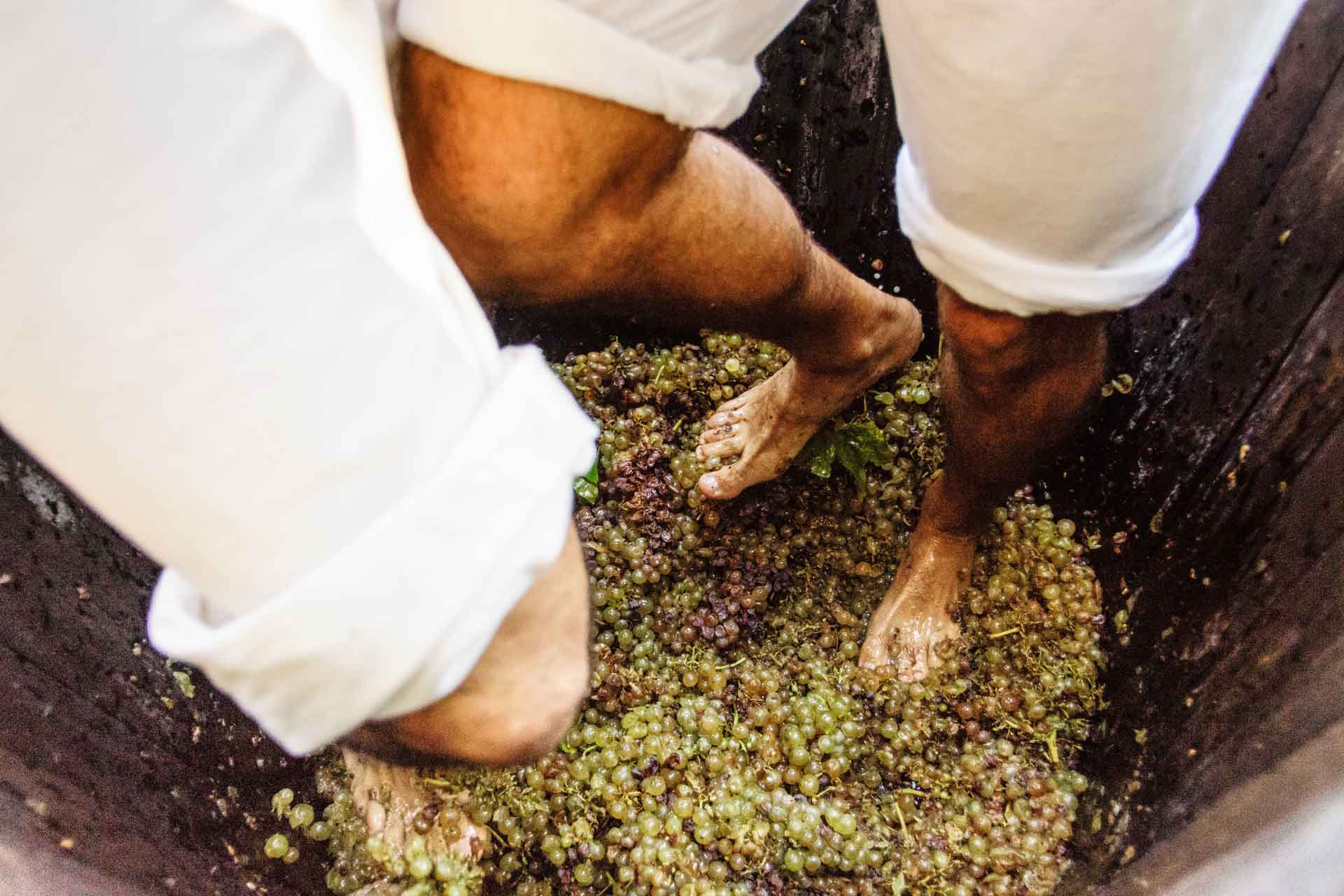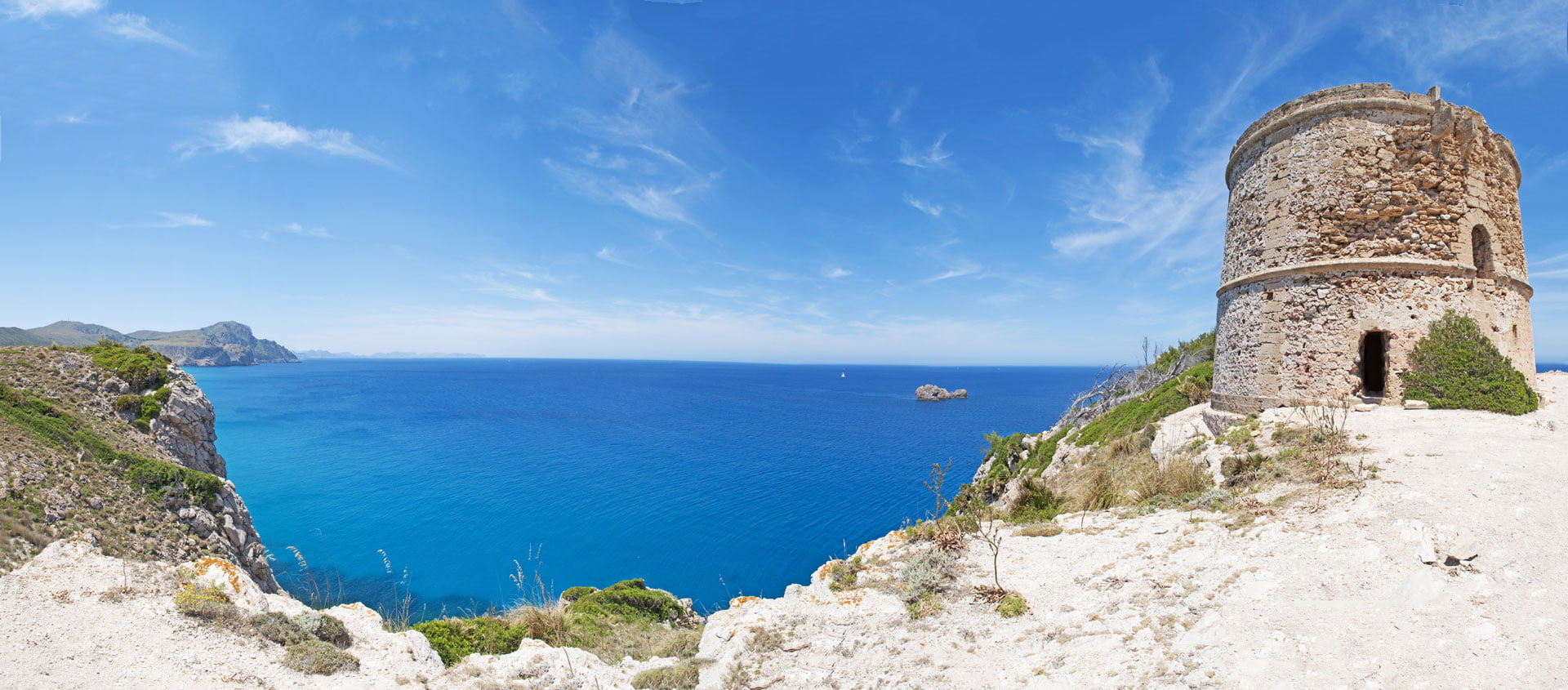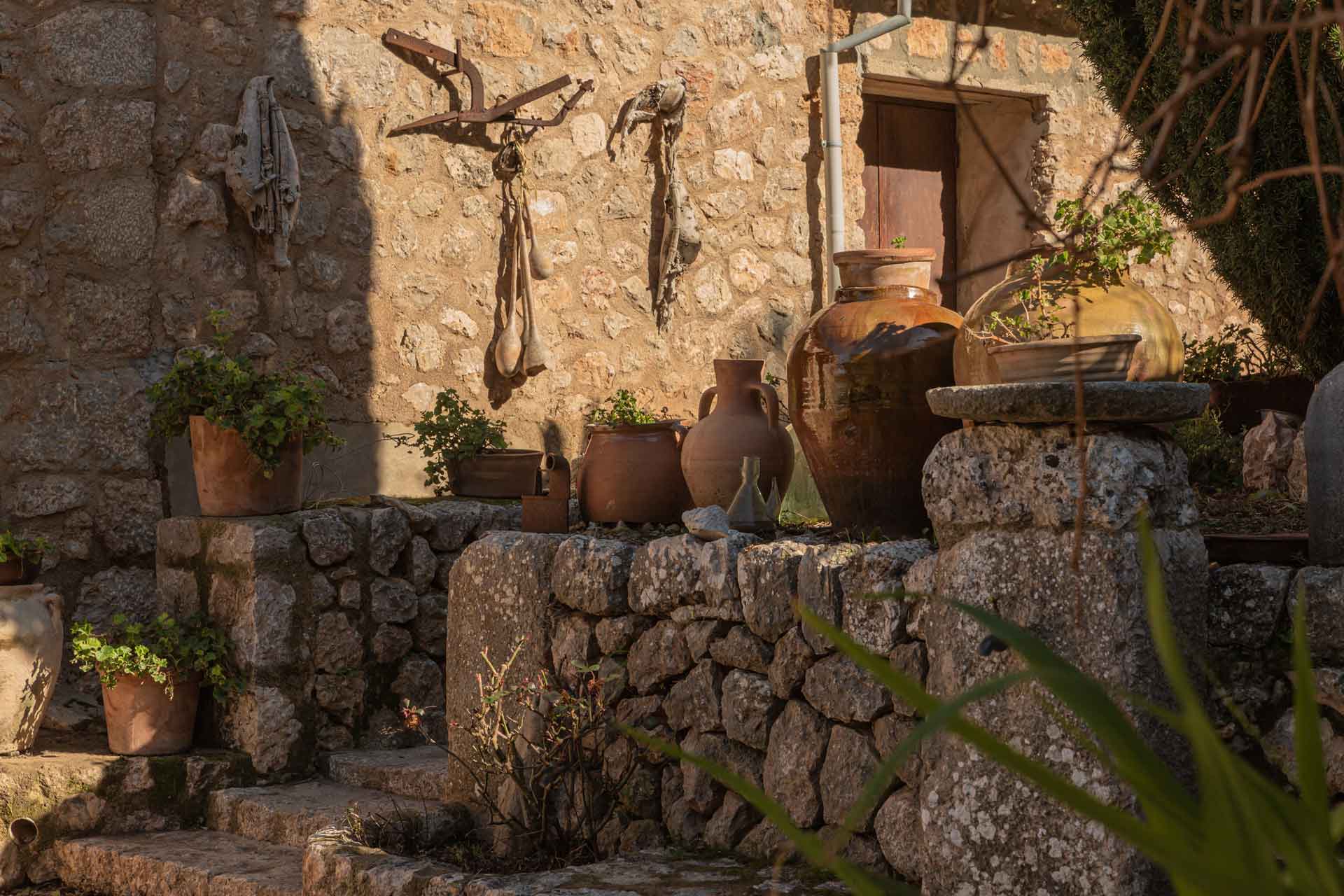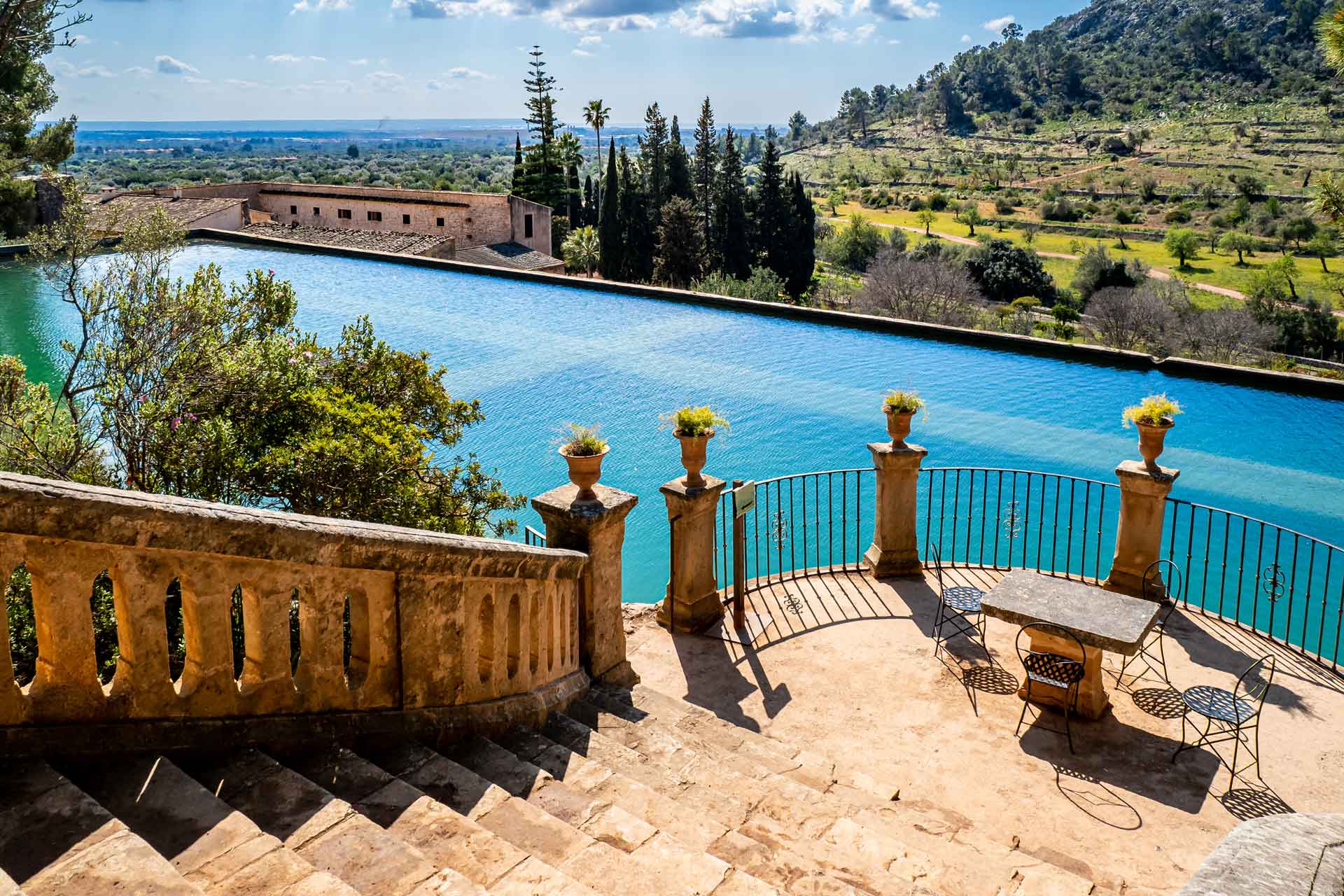It is the patron saint’s day and people are eager to celebrate. It is summer and the sun floods every corner of the village that has dawned adorned with garlands that give it a special color. Suddenly a demon appears and starts running after the children who flee in a mixture of fear and fun.
When visiting Algaida or Montuiri during their patron saint festivities, one can be surprised to walk through the streets and see a young man dressed in a skirt, straw hat and handkerchief in hand, dancing around a lady, while a demon provokes the public.
This celebration is not exclusive of these towns of the Pla de Mallorca, it can also be found in Alaró, Inca, Manacor, Consell or Soller. In spite of being similar in all these places, each one of them has its peculiarities.
The origin of the rite and its etymology
There is no unanimity on the origin of the rite nor on the origin of the word itself.
Some scholars say it began with the arrival of people from the Kingdom of Aragon, after the conquest and expulsion of the Muslims, and linked to the Corpus Christi celebrations.
According to other interpretations, the dance comes from the “entremeses”, short theatrical pieces written in prose or verse performed during the Corpus Christi procession, and documented for the first time in Mallorca in 1554.
Other interpretations, somewhat less rigorous, refer the origin of Dels Cossiers to Scottish dances, to celebrations of the classical period and even to Neolithic rites.
As for its etymology, it seems that the name derives from the Catalan word ‘Cossía’ whose origin is in the Mozarabic term ‘Kosasaïr’ which derives, finally, from the Latin word ‘Cursus’. The meaning of the term Cossía is ‘runner’. The dance and the route through the village would justify this version.
The Cossiers
During the dance, six Cossiers wrap the lady in a Quadrat or Square, as a representation of protection.
The Cossier is a young man dressed in pants and shirt, and over it a skirt and a sash. Most of the attire is white, the pants, the shirt, the stockings and the shoes, and the color note is given by the skirt and the sash, which are usually pink, green or yellow.
On the sash there are several colored ribbons that some attribute to the old ribbons won by the winners of the curses or races, which reinforces the theory of the etymological origin linked to Cossía, mentioned above.

A wide-brimmed palm hat turned upwards, adorned with flowers and blessed figures covers her head. In their lace stockings are numerous bells that, during the dance, accompany the drum and fabiol. In their hands, the Cossiers, carry bouquets of basil or mastic and handkerchiefs of the same colors that adorn their skirts, sashes and ribbons.
This attire has a great feminine charge, and its meaning must be placed in the customs of the sixteenth century when the Cossiers are first documented, and is related to the celebration of the harvest and the invocation of fertility.
The Lady
The lady is the protagonist of the event. Her costume, almost entirely in white, is complemented by a hat with colored details, and like the Cossiers, a sash and ribbons. She also carries in her hand a bouquet of basil or mastic.
The lady was not always really a woman. In certain places, the lady was for many years a young man hidden behind a female garment.
The dimoni (the demon)
The demons are figures that we often find in Mallorca and throughout the Mediterranean.
Dressed in aggressive colors, adorned with representations of hell, snakes and reptiles, the demon wears a large, disproportionate mask, with large fangs and twisted horns that instill fear in children.
As a curiosity we will say that an old mask from the early nineteenth century is exposed in the town hall of Montuiri.
The rite
While the lady and the Cossiers are part of the original dance, the figure of the devil was introduced later, possibly for religious reasons.
The interpretation of the original dance could be linked to the rite of fertility, the celebration of the good harvest and the invocation for favorable years to come.
With the introduction of the demon, the dance came to represent the constant battle of good against evil. The demon, representing evil, tries to approach the lady, while the Cossiers prevent it.

The Cossiers of Montuiri
The Cossiers de Montuiri celebrate the rite every 15th, 23rd and 24th of August.
On August 15th, the Cossiers de Montuïri, accompanied by the Devil, go through the village dancing in front of stores and cafes, ending the tour in the main square where they perform two more dances on a scaffold that end the performance.
The Devil, after the dance or during the tour, chases the children, who provoke him with the cry of banya verda, which means green horn.
On the afternoon of August 23, the Plaza Mayor of Montuiri is full of people waiting for the Cossiers, accompanied by the lady, to leave the town hall building. The devil is unpredictable; he can appear at any moment from anywhere.
The group of dancers accompany the priests to the church. At the exit of the temple, the group returns to dance through the town, followed by the inhabitants and visitors.
On August 24, the feast day of Sant Bartomeu, patron saint of the village, the sound of the xeremies at 9 am, from the bell tower of the church, announces the beginning of the day.
Again the Cossiers and the devil leave the Town Hall, dance on the scaffold and begin a new tour of the village. Later they accompany the authorities to the church where they dance “l’Oferta”.
Dates to attend the show
In Algaida on January 16th and July 24th and 25th; in Montuiri on August 15th, 23rd and 24th; in Pollença on August 2nd; in Manacor on the last Friday of May; in Alaró on the last Saturday of May and August 16th.










